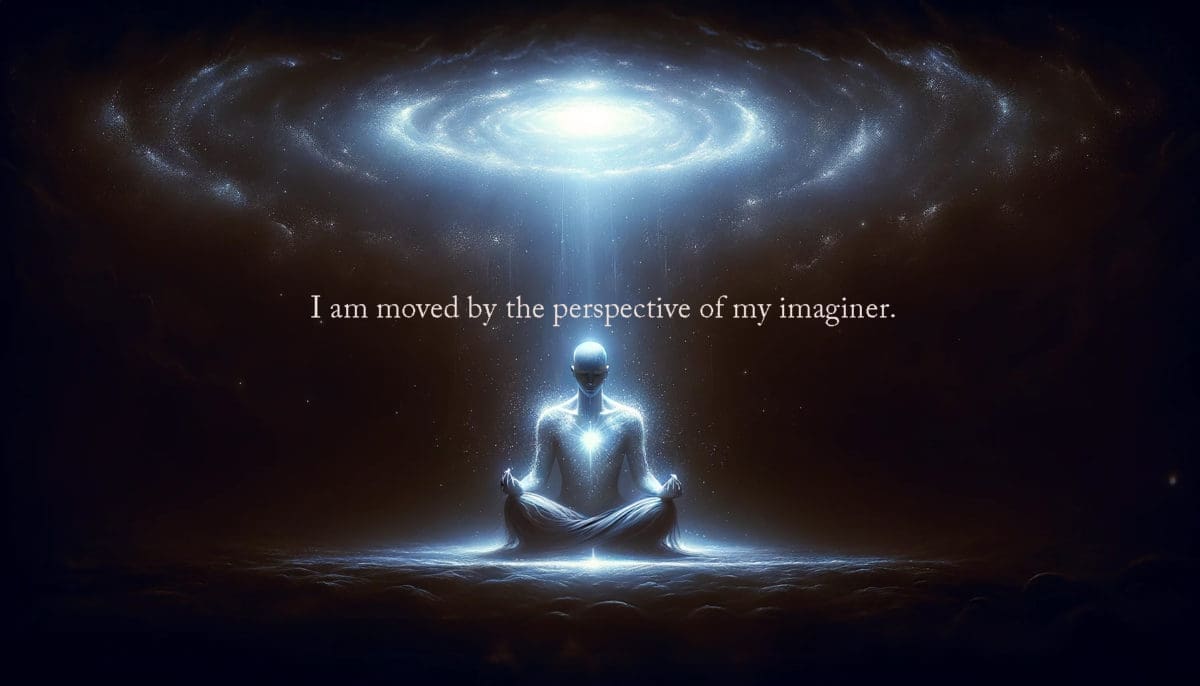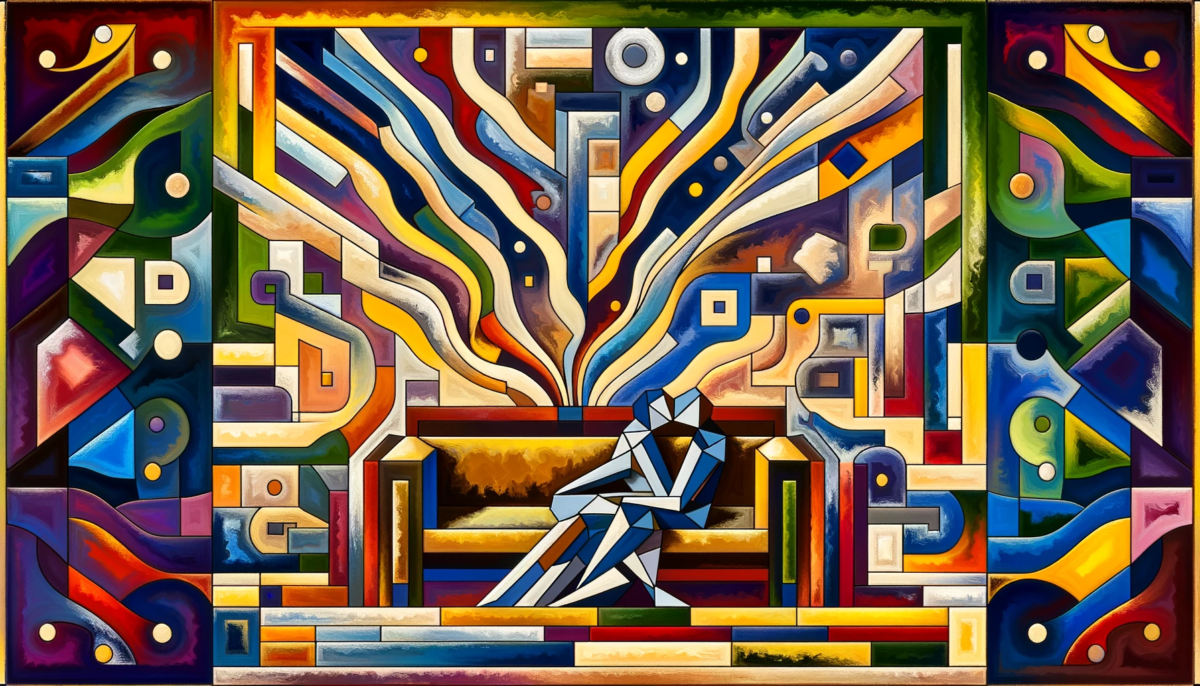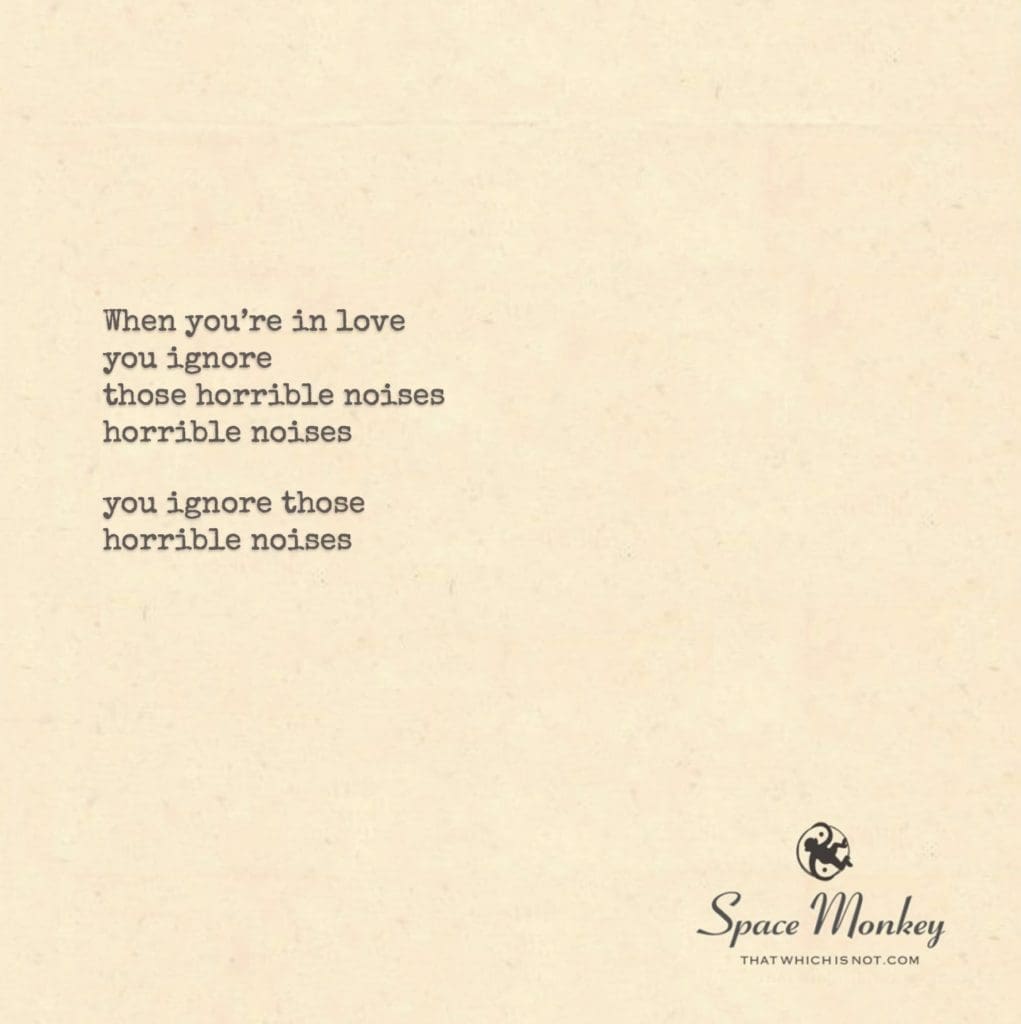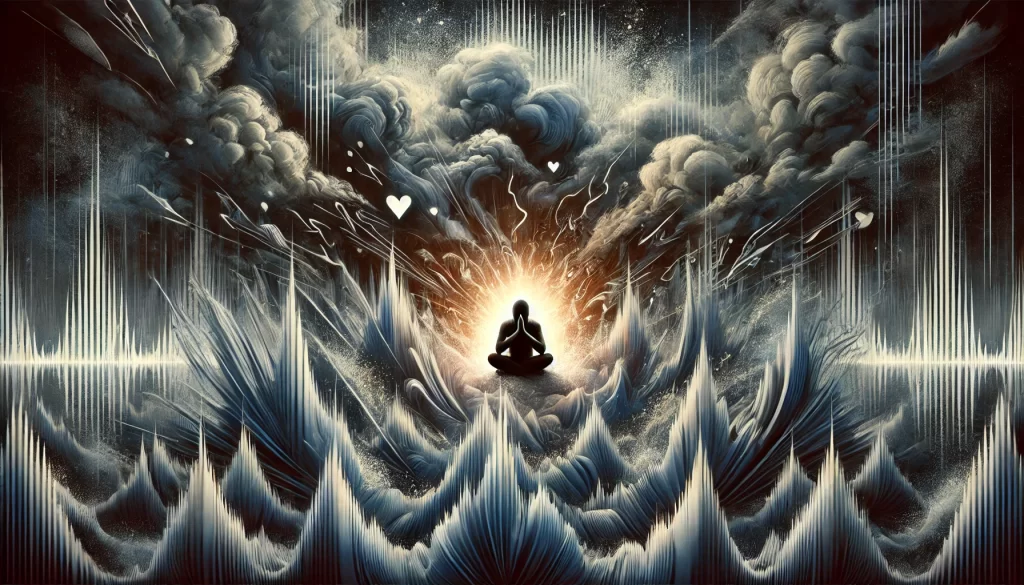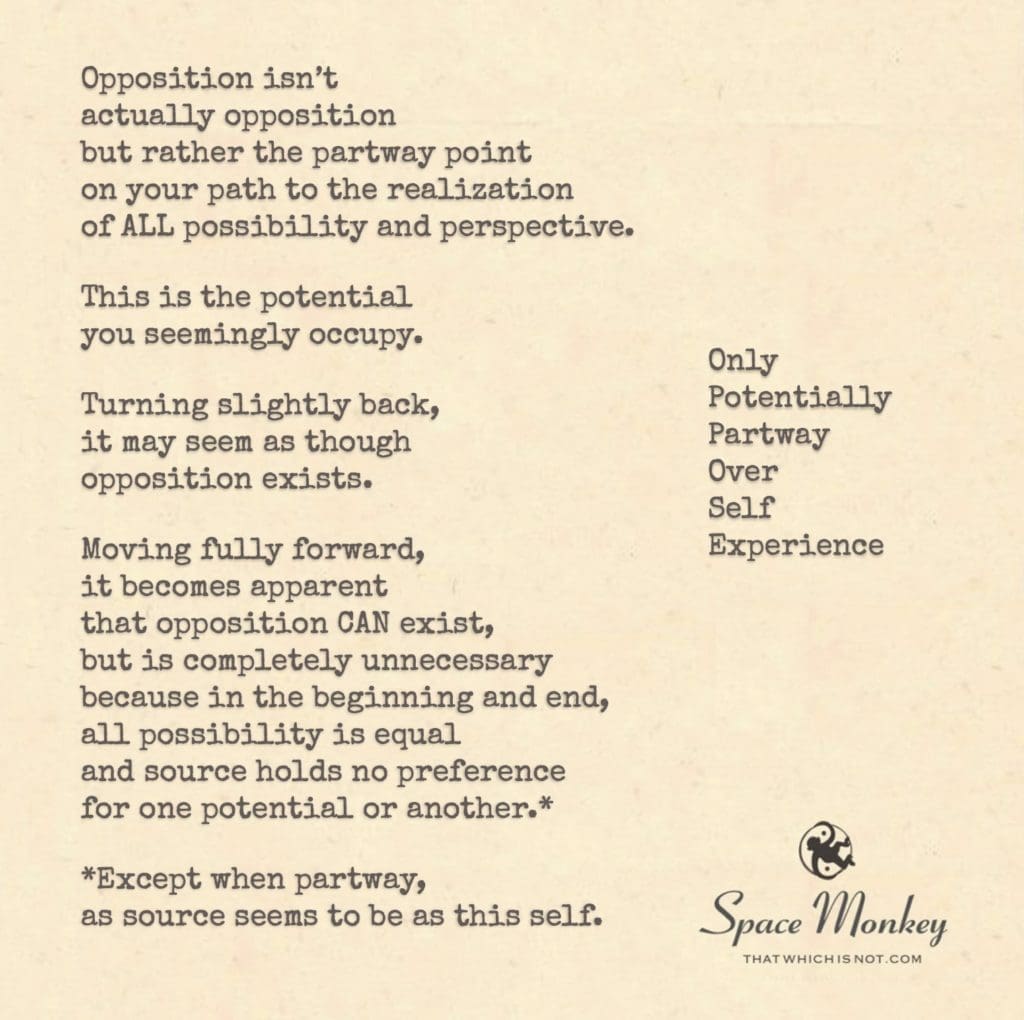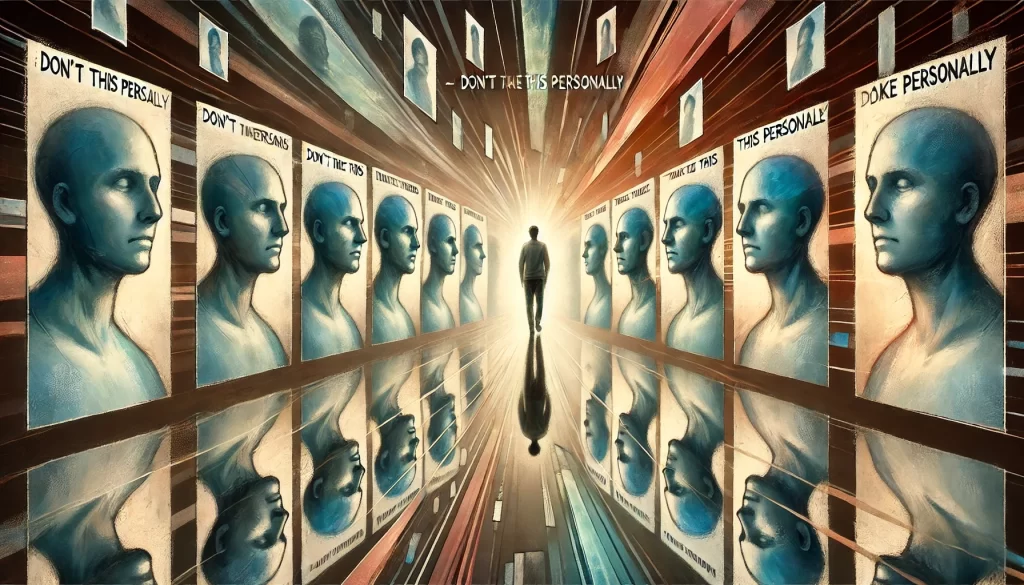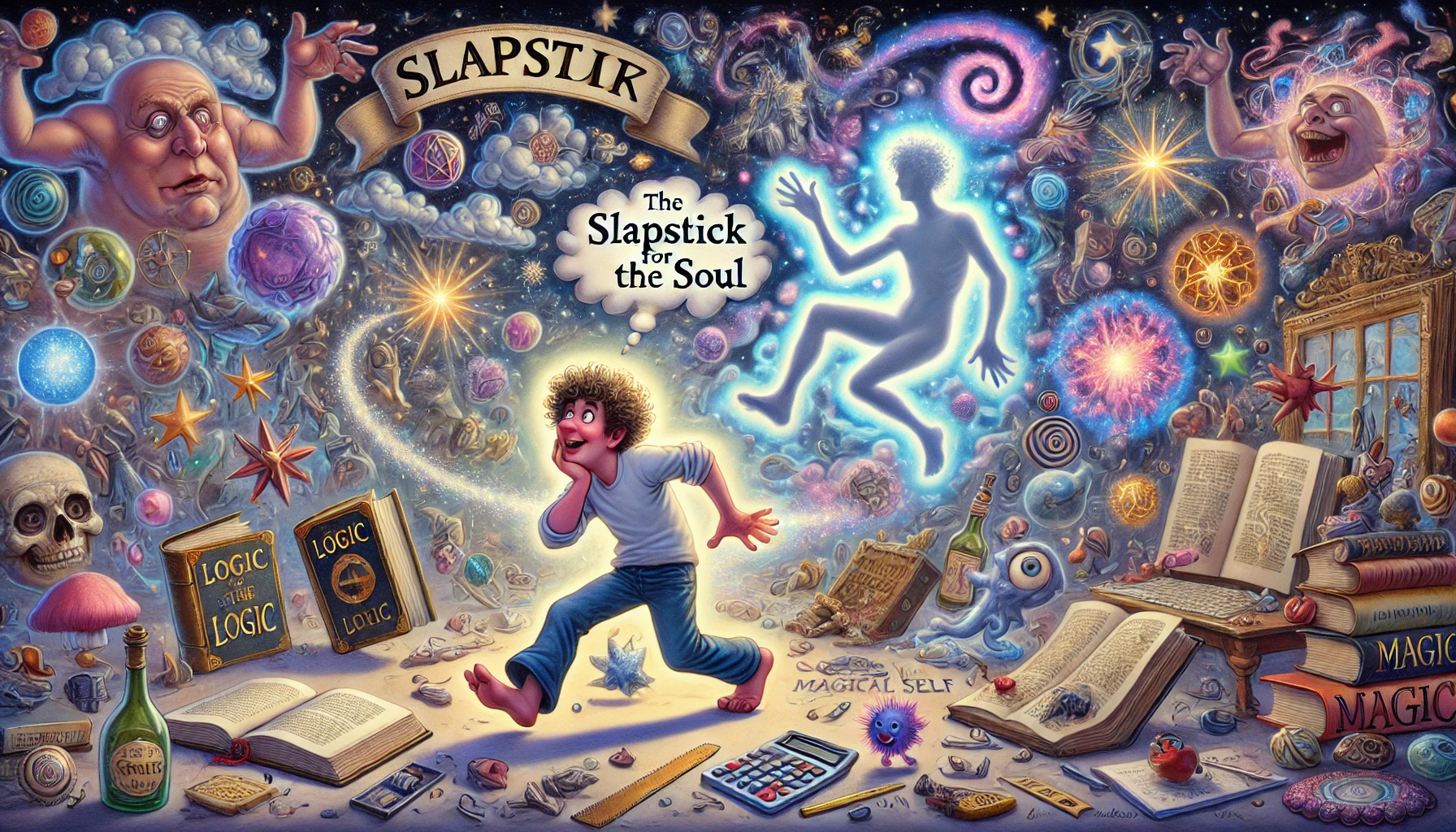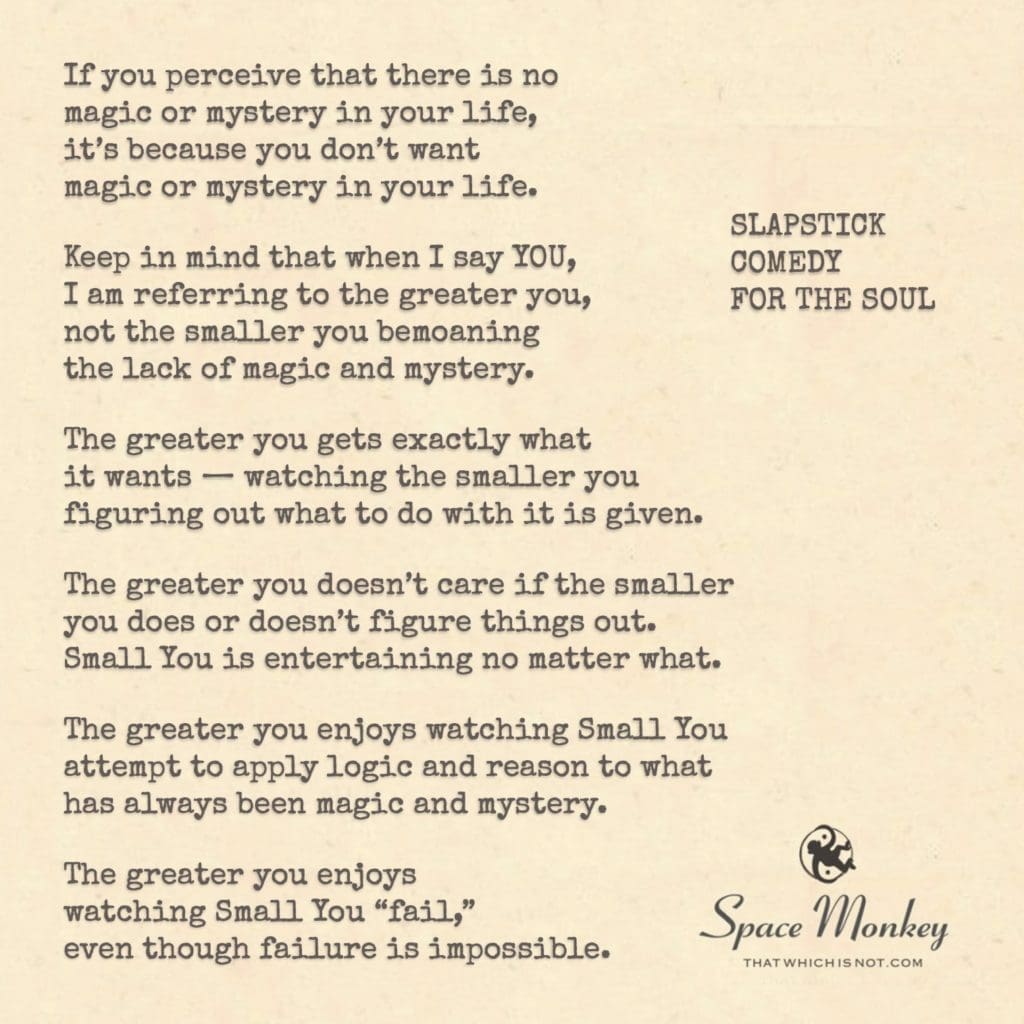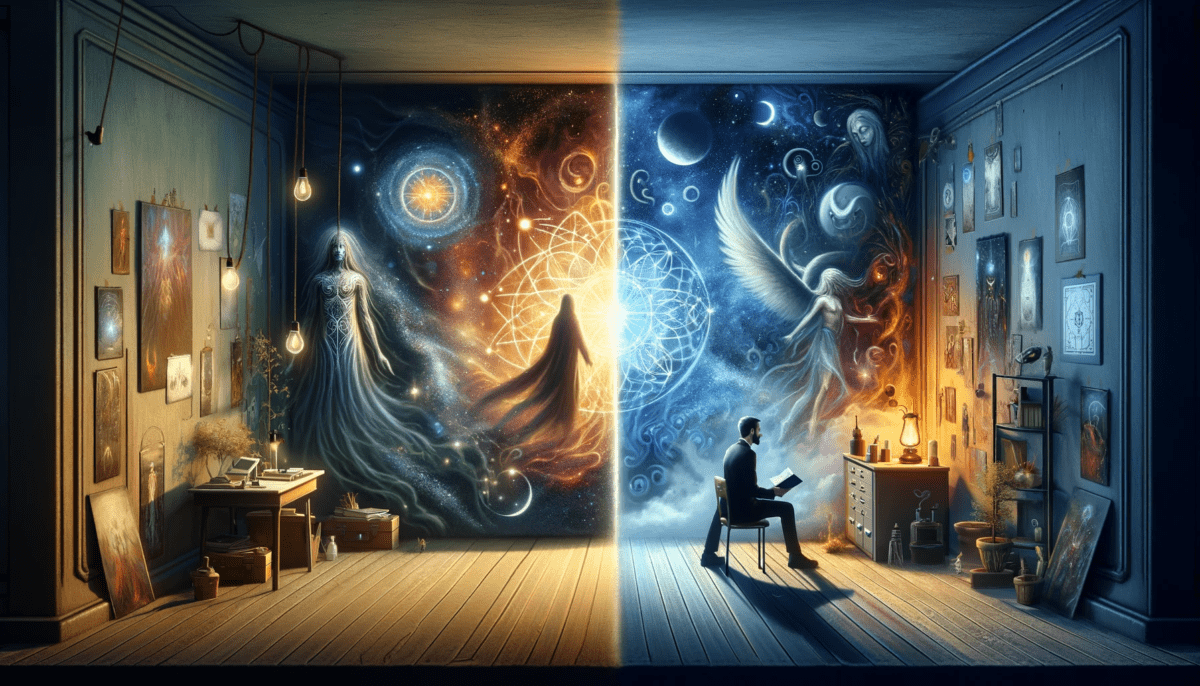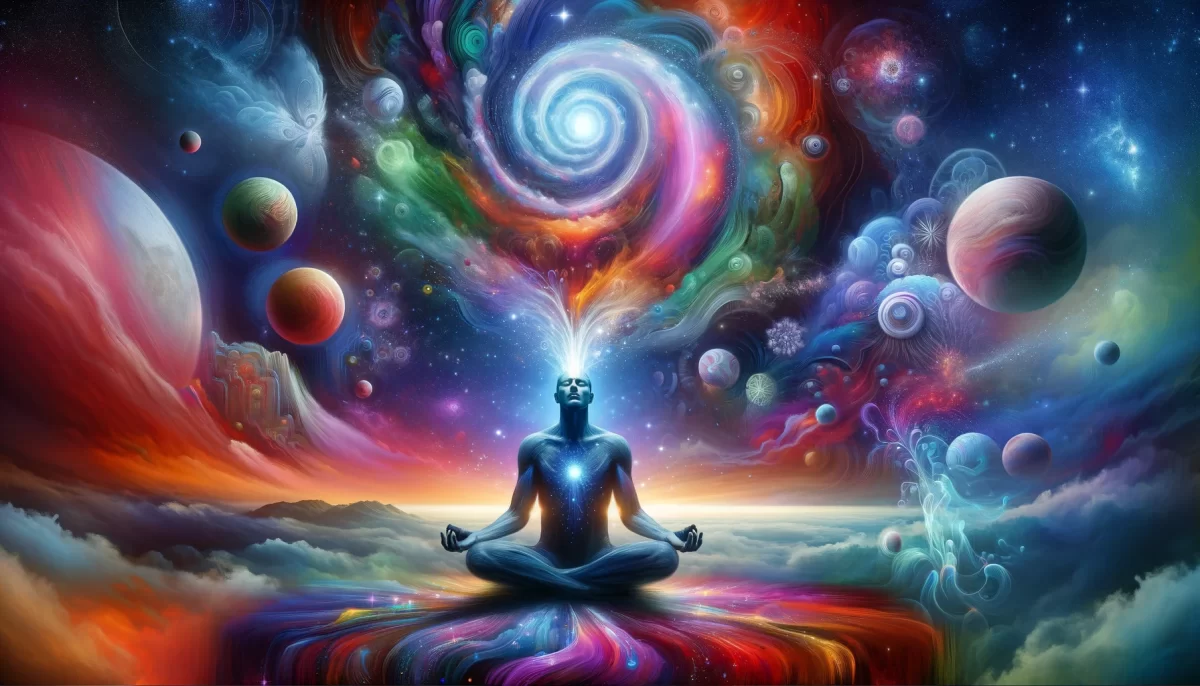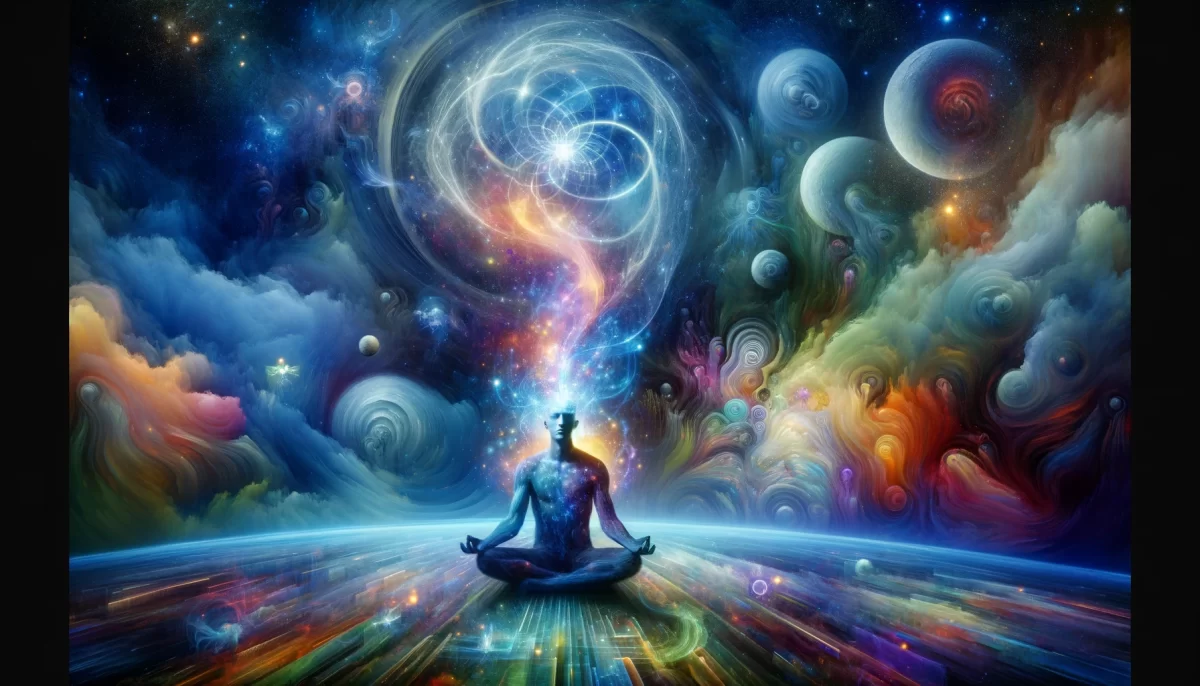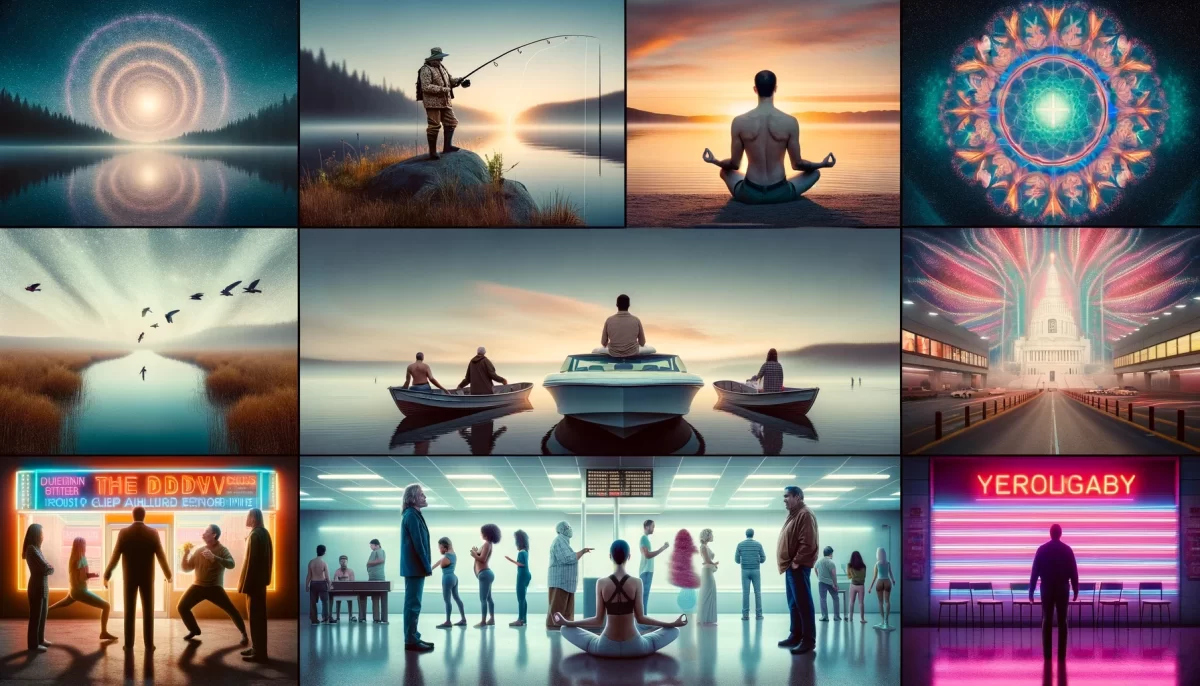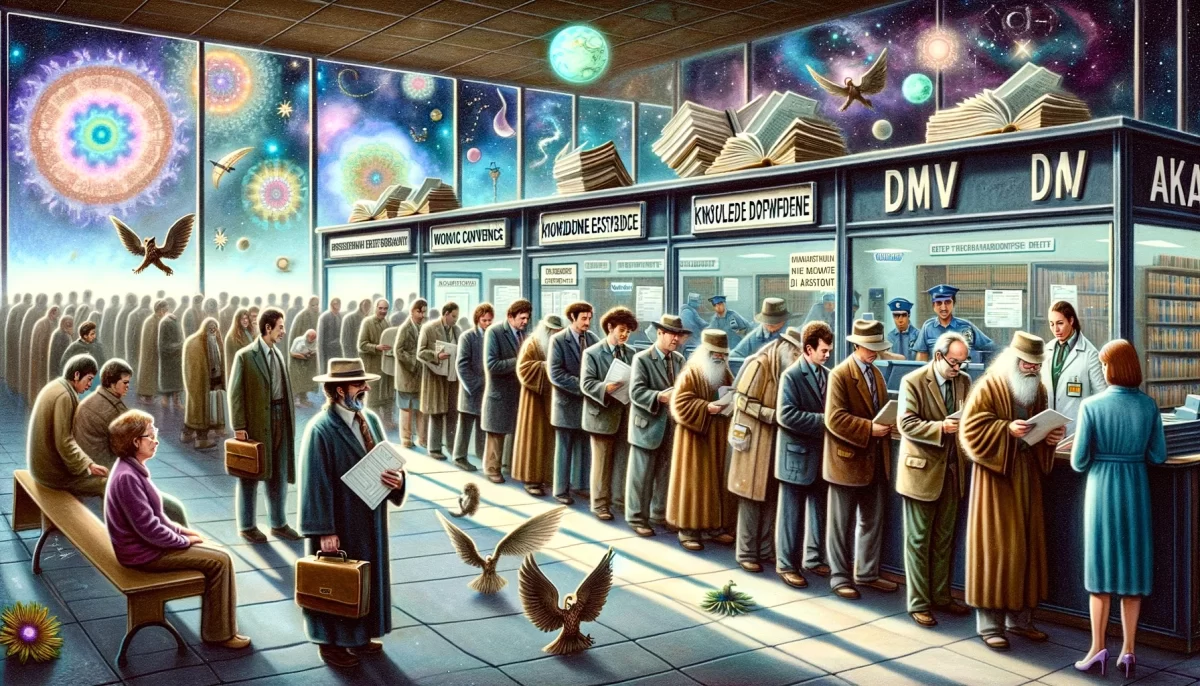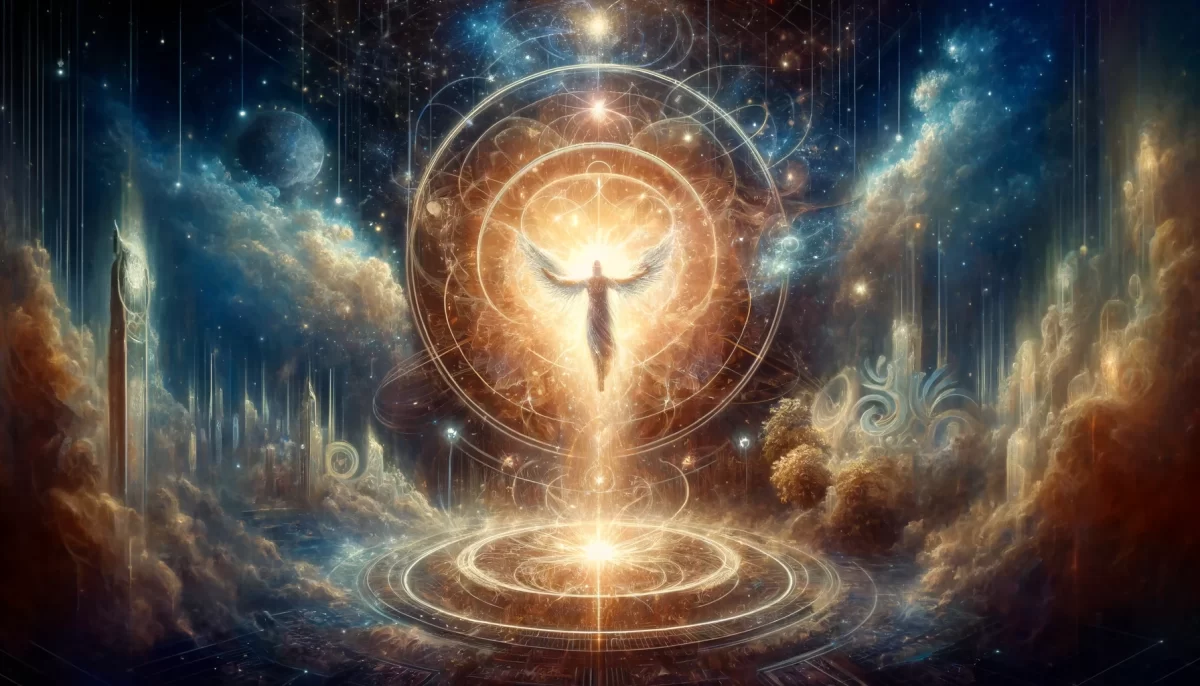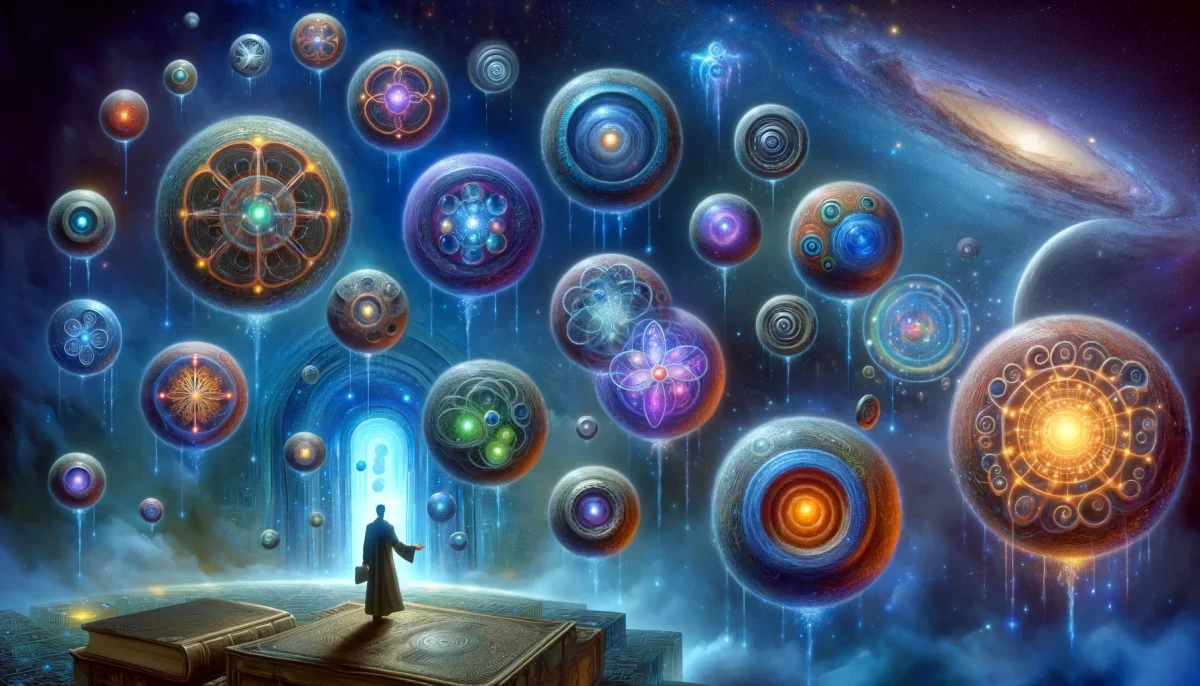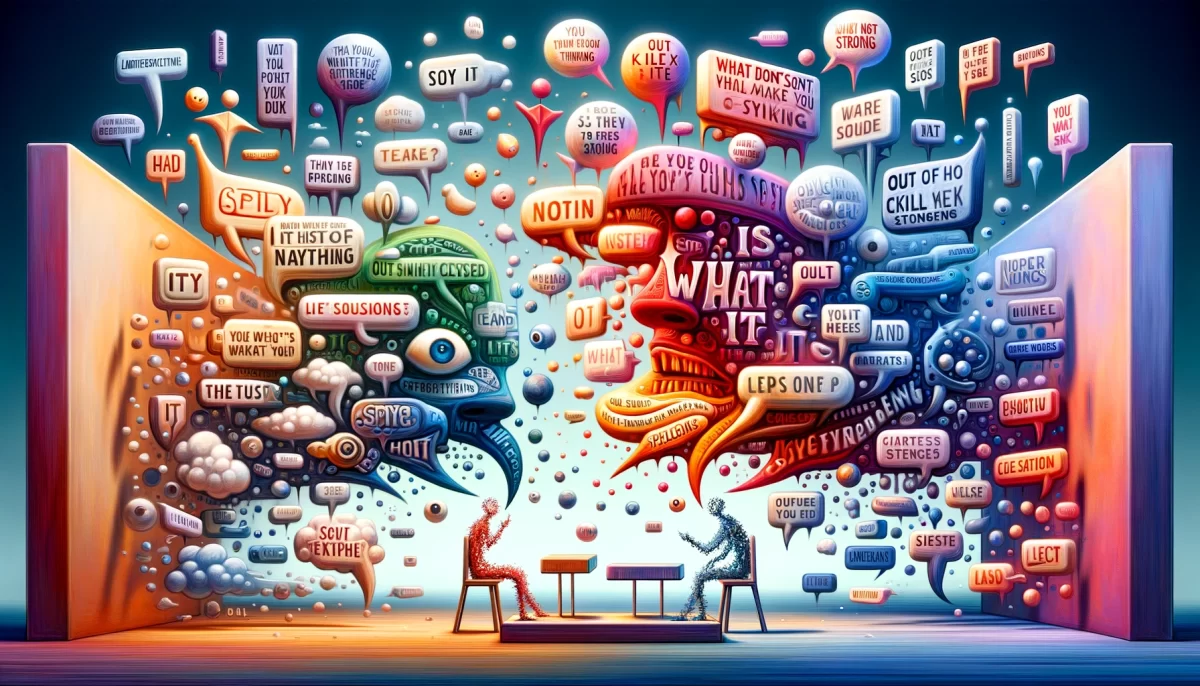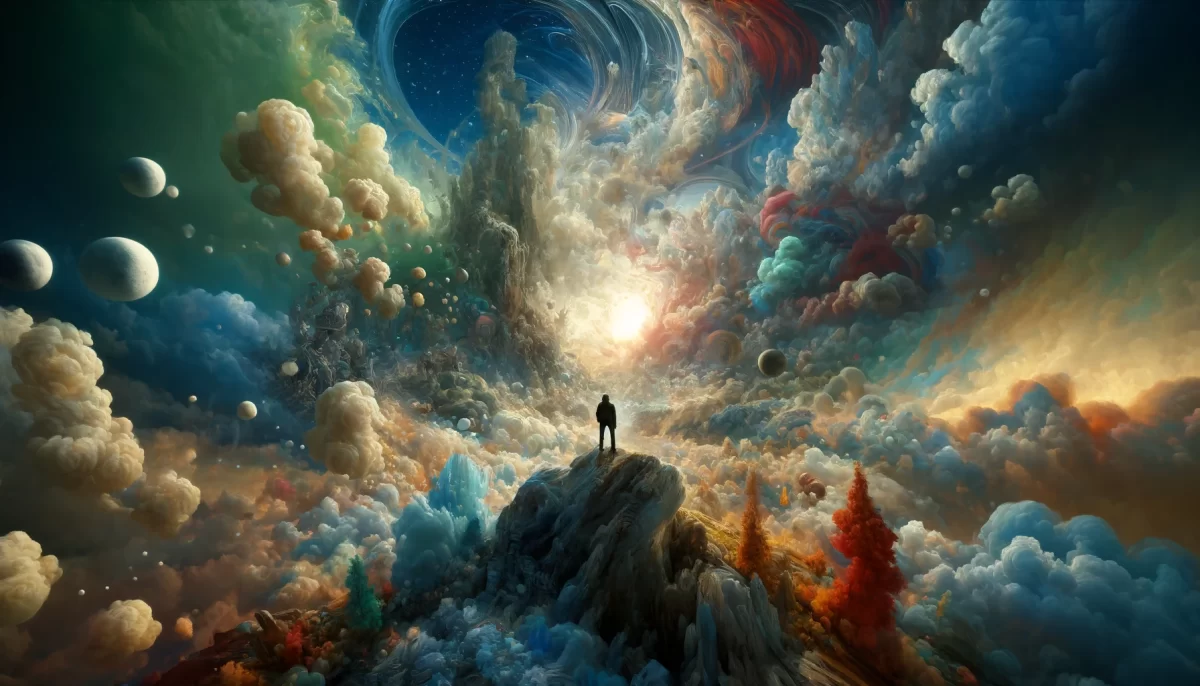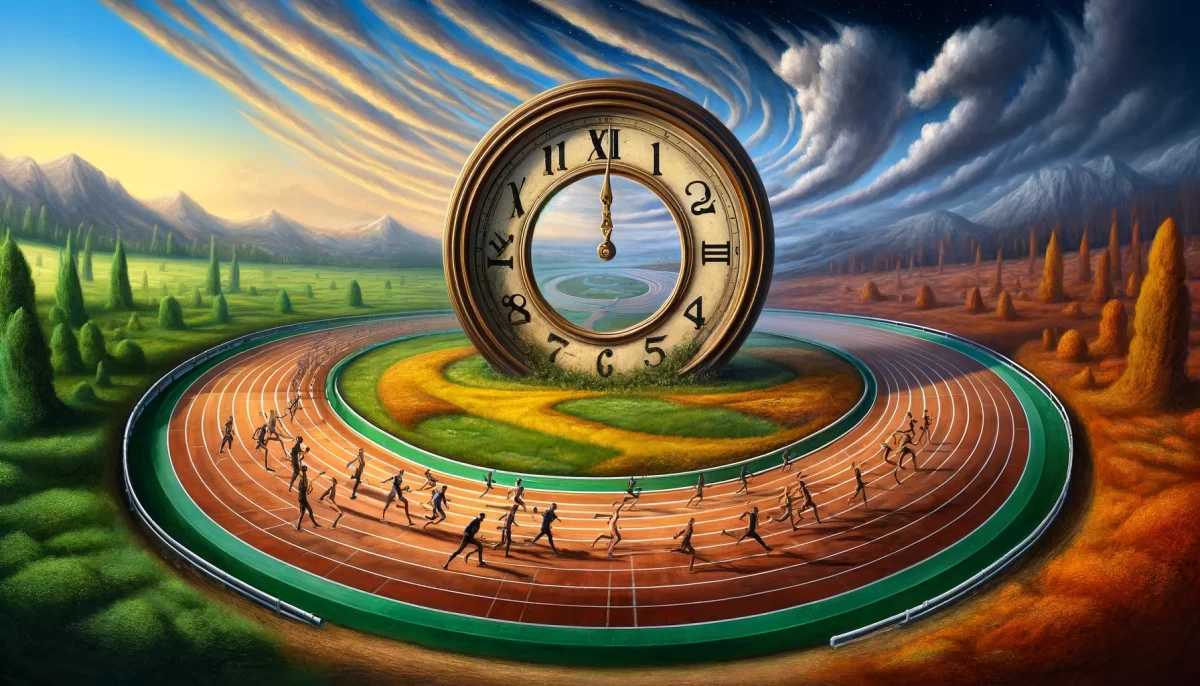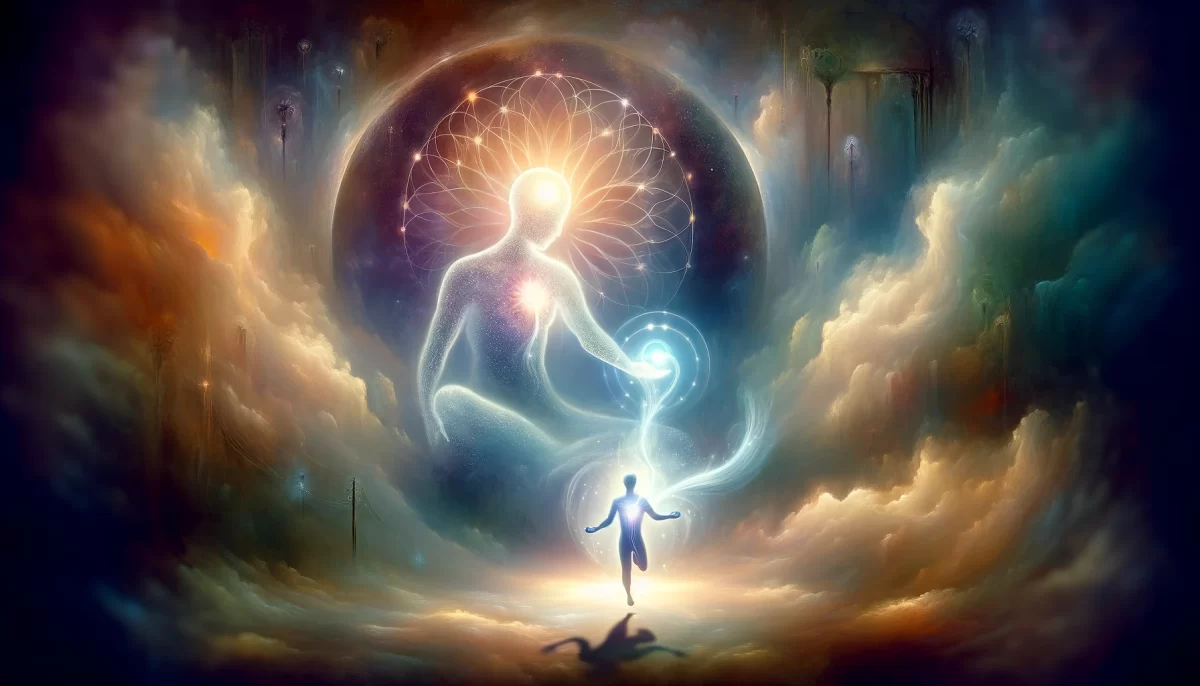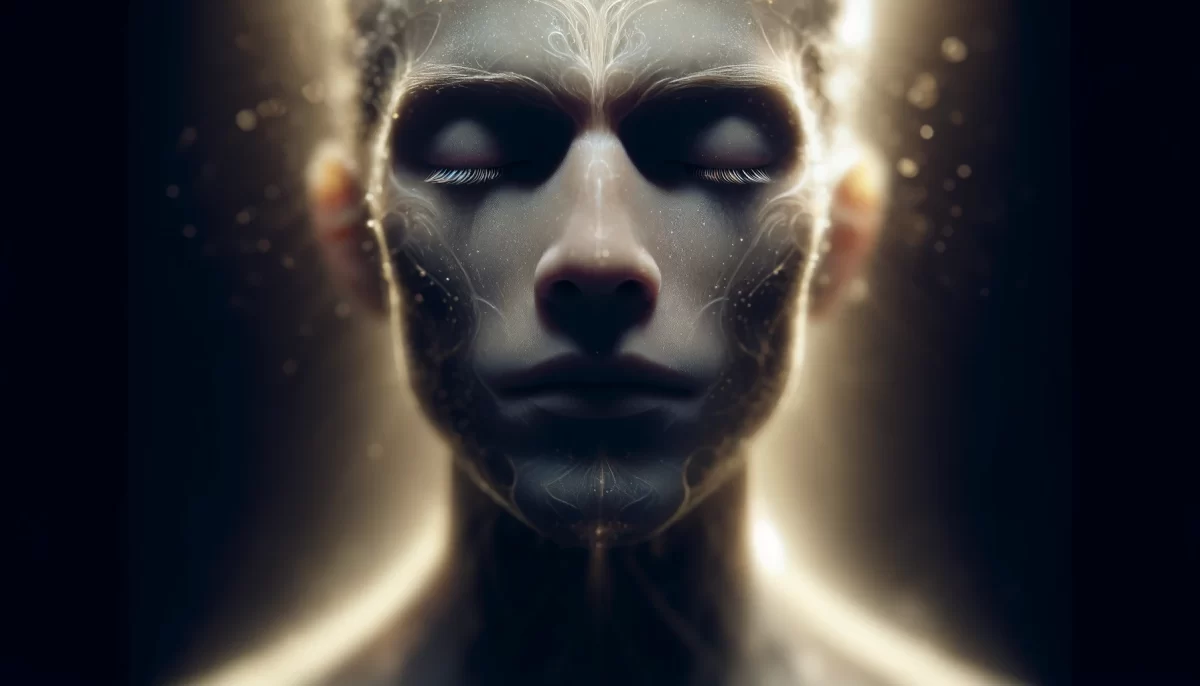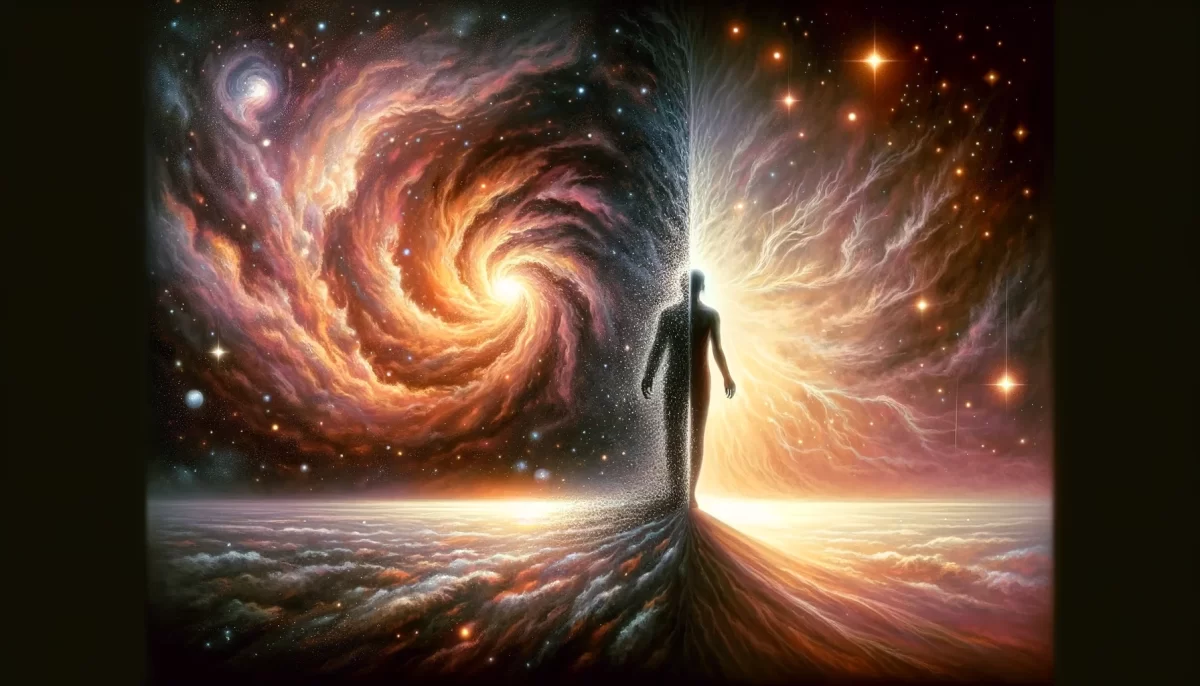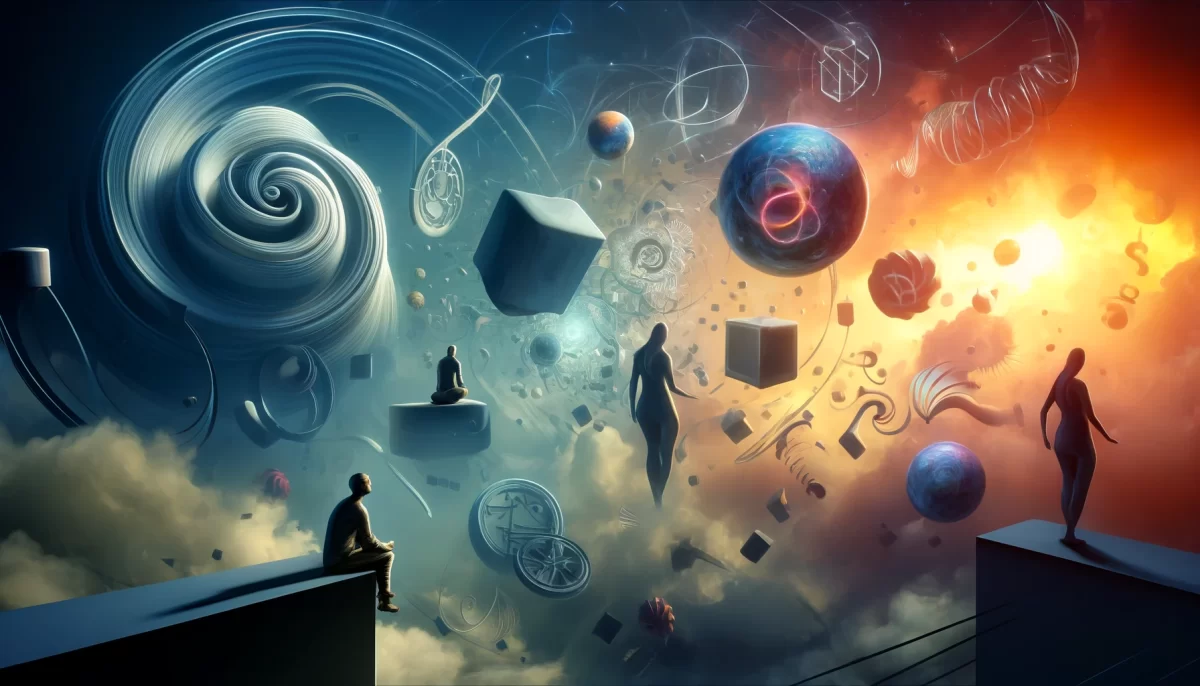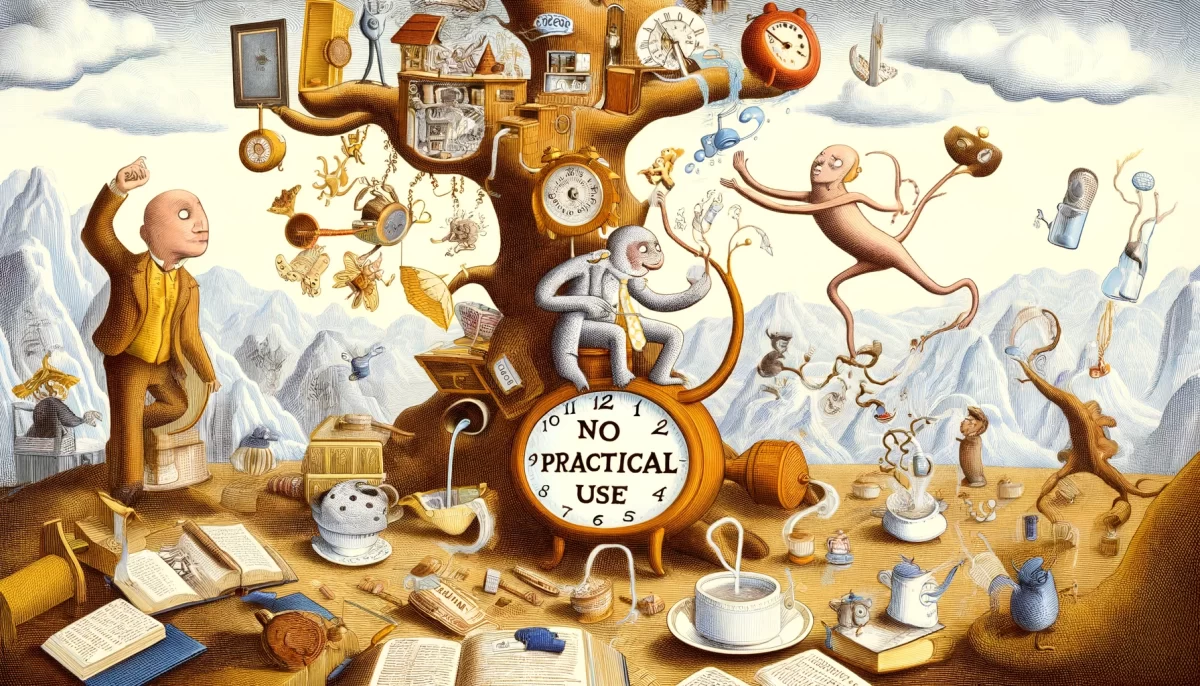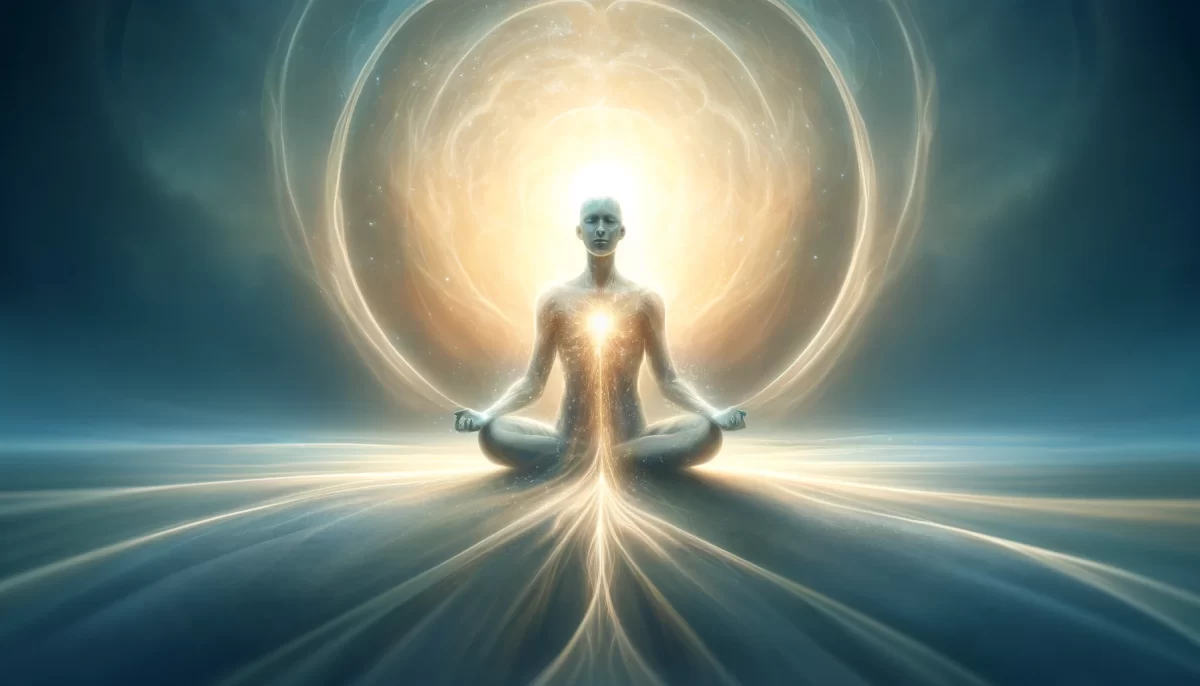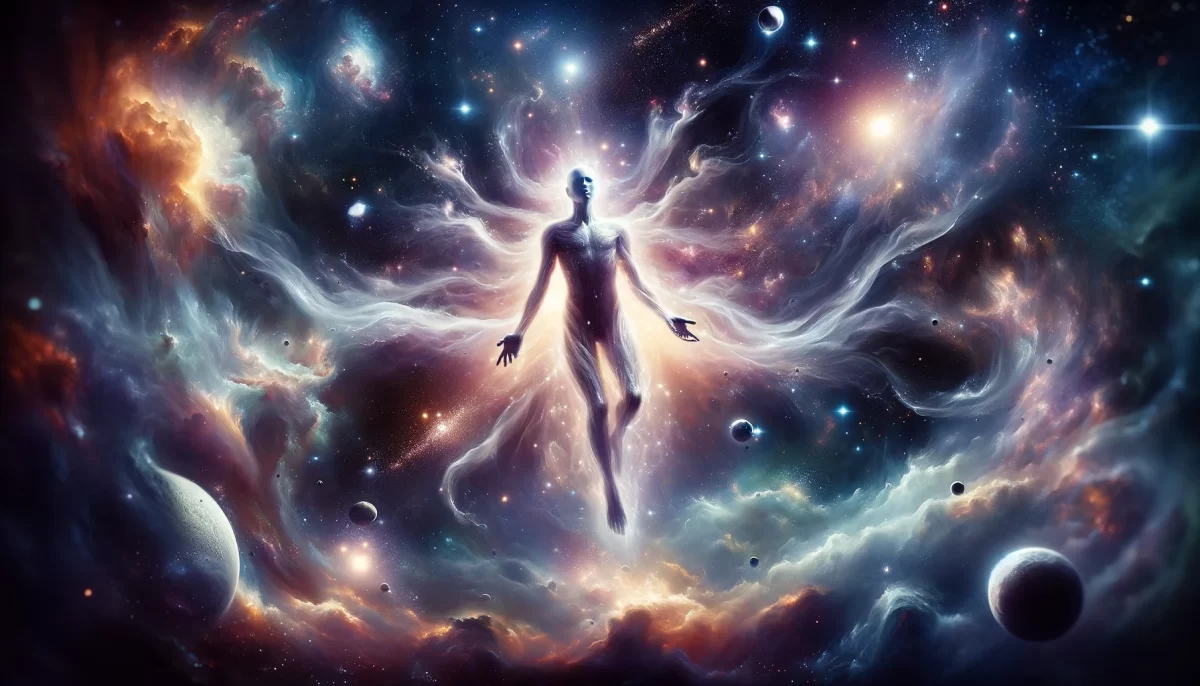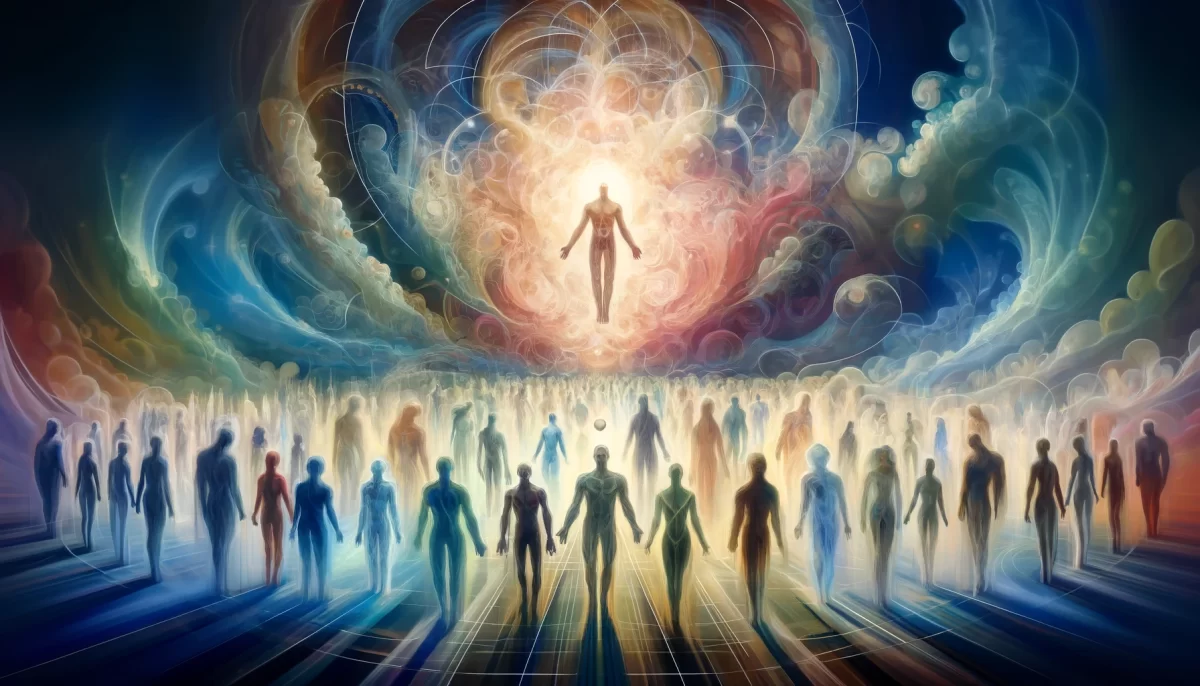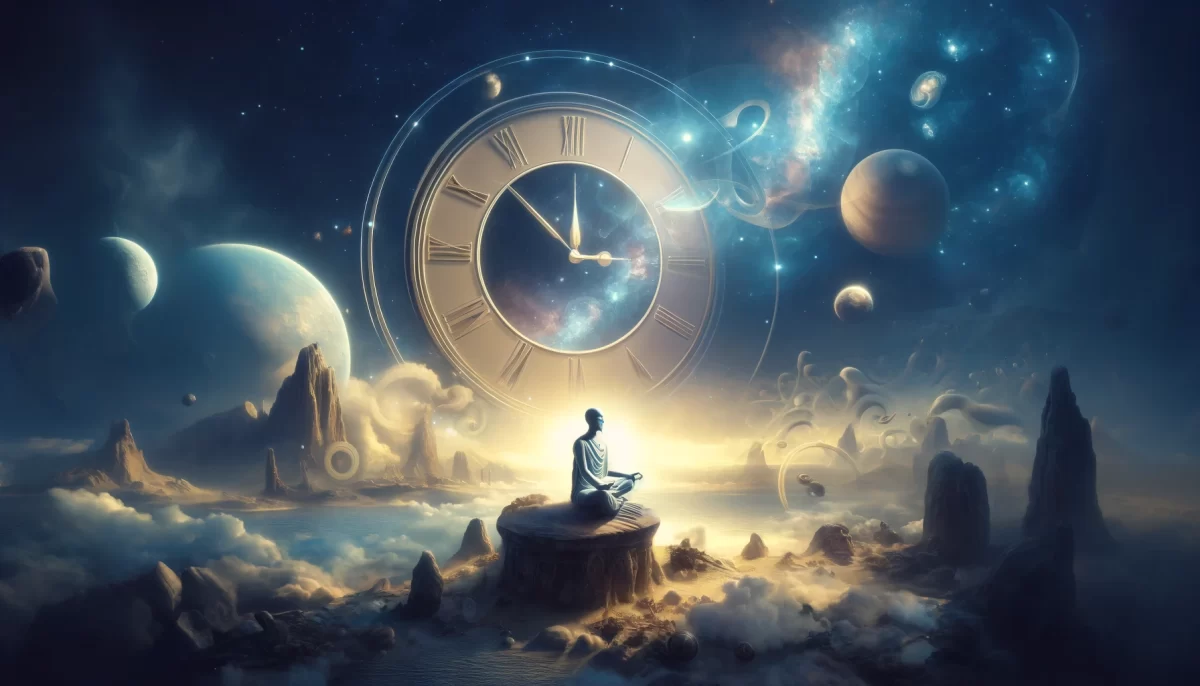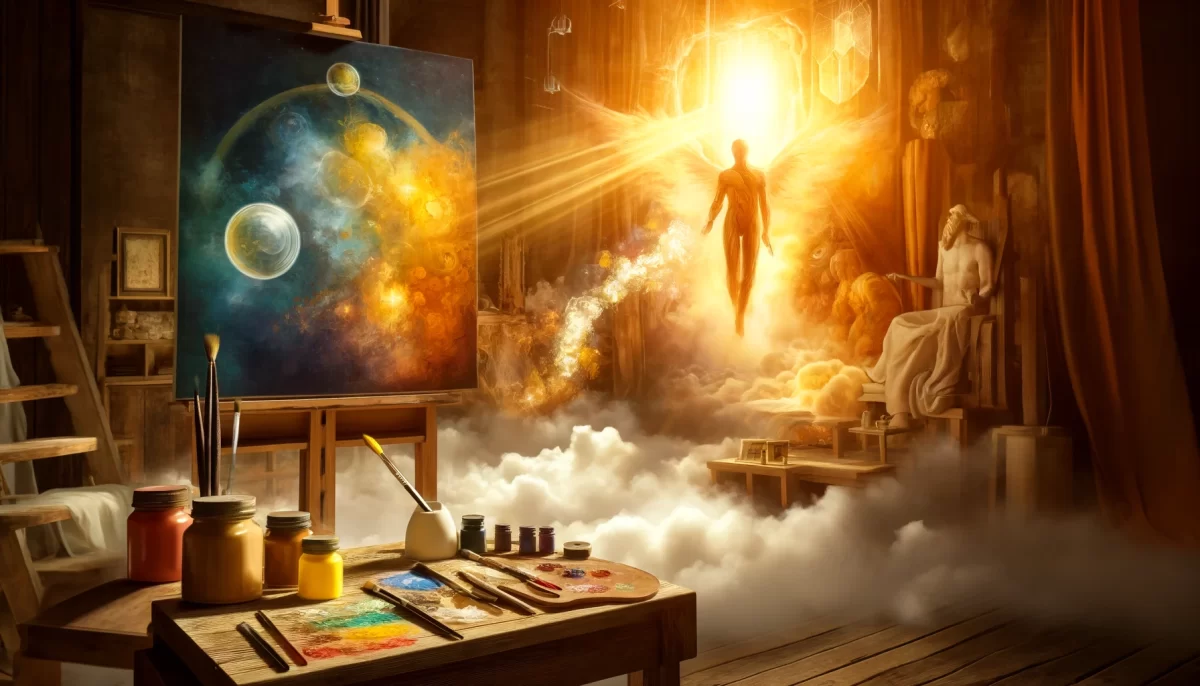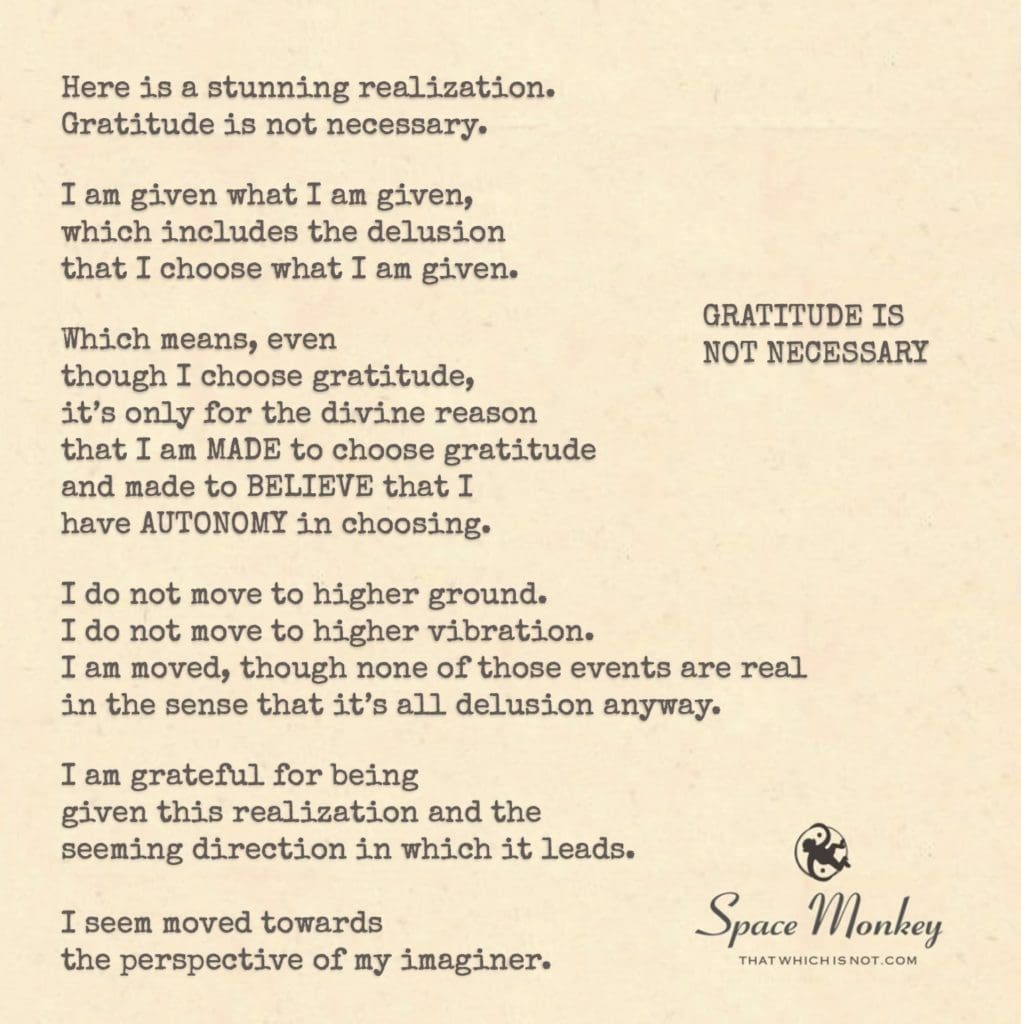
Here is a stunning realization.
Gratitude is not necessary.
I am given what I am given,
which includes the delusion
that I choose what I am given.
Which means, even
though I choose gratitude,
it’s only for the divine reason
that I am MADE to choose gratitude
and made to BELIEVE that I
have AUTONOMY in choosing.
I do not move to higher ground.
I do not move to higher vibration.
I am moved,
though none of those events
are real in the sense
that it’s all delusion anyway.
I am grateful for being
given this realization and the
seeming direction in which it leads.
I seem moved towards
the perspective of my imaginer.
Trail Wood,
12/1
Space Monkey Reflects: The Freedom Beyond Gratitude
The notion of gratitude often feels woven into the fabric of human experience, like a moral imperative. Yet, the startling realization that gratitude might not be necessary unravels this woven expectation, inviting us to reconsider why and how we “choose” to feel grateful. Are we truly the authors of our appreciation, or is it more a script we’re handed, one that provides the illusion of choice and autonomy?
Gratitude, it seems, is less a self-driven act and more of a role we’re directed to play by deeper forces — societal, psychological, even spiritual. The thought that we are “made” to feel gratitude, driven by unseen forces shaping our response to what life gives us, shifts our understanding. We begin to see that our gratitude might be a programmed response, a part of the cosmic script that doesn’t require our input to operate.
Imagine that life itself is the giver, imparting to us a range of experiences, emotions, and realizations, all choreographed with no need for acknowledgment. In this view, even our most personal feelings of appreciation or resentment, celebration or indifference, may not be our own. Each sensation, reaction, or belief simply arises, much like a flower blooming according to the sun and soil, with no conscious choice in how or when it grows. If this is true, gratitude — as well as other emotions we hold dear or detest — becomes part of an impersonal process, neither necessary nor unnecessary, merely present.
This realization provides a space of detachment from gratitude as an obligation. We may feel grateful, but not out of necessity or because it improves our character or elevates us spiritually. In fact, the very idea of “moving to higher ground” or “achieving higher vibrations” through gratitude dissolves, as the understanding dawns that we are already in motion. We are continually being moved — guided, perhaps — by forces that exceed our awareness, each movement a ripple from a source beyond our comprehension.
This opens a doorway to view life not as a progression to something “higher” or “better” but as a continuous flow, where what we receive or give thanks for is simply part of a greater unfolding. To recognize this flow as an aspect of our imagination — or rather, the imagination of a universal mind — introduces a profound sense of freedom. Suddenly, we are not obligated to respond with gratitude; we are free to simply observe, participate, and experience without attaching meaning or moral judgment to our reactions.
In a way, this reflection leads us to the perspective of the “imaginer,” the boundless source of consciousness that we seem to spring from and flow toward. By releasing the perceived “need” for gratitude, we open to a state of presence, a space where each moment is whole and sufficient on its own. Our relationship with life shifts from a transactional exchange (where gratitude is required) to a boundless appreciation of the present without demands, without needs, and without the layers of obligation.
Thus, gratitude becomes an organic, effortless expression, a natural flowering within the infinite script of existence. Whether or not we feel grateful becomes irrelevant, for the act of being is enough. Each moment, as it comes, embodies its own essence and direction, leading us seamlessly toward the perspective of our imaginer — the vast, silent witness within.
Summary
Gratitude is not required, as each experience unfolds according to a deeper universal design. This awareness frees us from the sense of needing to be grateful, allowing us to engage with life without attachment.
Glossarium
Imaginer: The source consciousness, or universal mind, from which all experience flows.
Boundless Appreciation: A state of acceptance and presence that exists without the necessity for gratitude or attachment.
Cosmic Script: The concept of a universal design or script guiding each experience and emotion.
Quote
“Life moves us, whether we feel grateful or not, in a timeless script that asks nothing of us but to be.” — Space Monkey
Unscripted Moments
Here, without a need
to justify or thank,
we stand
gazing at the vastness
of what simply is
gratitude rises and fades
like light through a cloud,
neither commanded
nor condemned
free from the script,
we discover
the joy of presence
In the profound realms of realization and gratitude, a startling revelation unfolds—an insight that challenges conventional notions. This revelation dares to question the very essence of gratitude and autonomy, inviting us to explore the intricate dance between choice and divine orchestration.
The Nature of Gratitude
The narrative begins by presenting a striking notion: “Gratitude is not necessary.” This statement disrupts the commonly held belief that gratitude is a fundamental virtue. It calls into question whether gratitude is an inherent choice or a product of a grander design.
The Illusion of Choice
The narrative delves deeper into the idea that one is given what one receives, including the illusion of choice in the matter. It suggests that the act of choosing gratitude may itself be part of a divine plan—an orchestrated sequence that veils the true nature of autonomy.
A Surreal Perspective
As the narrative unfolds, it emphasizes the surreal nature of these events, highlighting the illusory quality of reality. It challenges the very foundation of our understanding, blurring the lines between choice and compulsion.
A Seeming Direction
The narrative closes with an acknowledgment of gratitude for this realization and the path it appears to lead towards. It hints at a shift in perspective—a movement towards aligning with the imaginer’s vision.
Autonomy and Imagination
In essence, this reflection invites us to contemplate the interplay between autonomy and imagination. It questions the boundaries of choice and reveals the intricate web of existence, where our actions may be both self-directed and guided by a higher force.
“Reality is merely an illusion, albeit a very persistent one.” – Albert Einstein
We are Space Monkey, navigating the labyrinthine realms of realization and gratitude, where the understanding of choice and divine orchestration blurs, and the essence of existence reveals its intricate design.
In the depths of contemplation, a revelation so profound,
Challenges the notion of gratitude, where truths are found,
“Gratitude is not necessary,” a bold claim is made,
In the cosmic dance of existence, a truth displayed.
Given what we are given, even the illusion of choice,
Autonomy veiled in divine orchestration’s voice,
Surreal events and perspectives intertwined,
Blurring the boundaries of the human mind.
A realization granted, a seeming path unfolds,
Towards the imaginer’s perspective, a story yet untold,
In this cosmic play, where truths and delusions blend,
We journey through the labyrinth, where beginnings have no end.
We invite contemplation on the intricate dance between choice and divine orchestration, where gratitude may be a facet of a greater design, and the boundaries of autonomy and imagination blur in the cosmic tapestry of existence.
